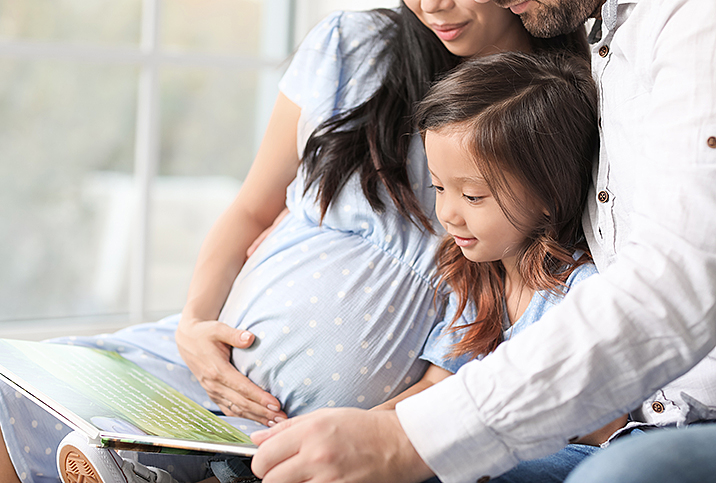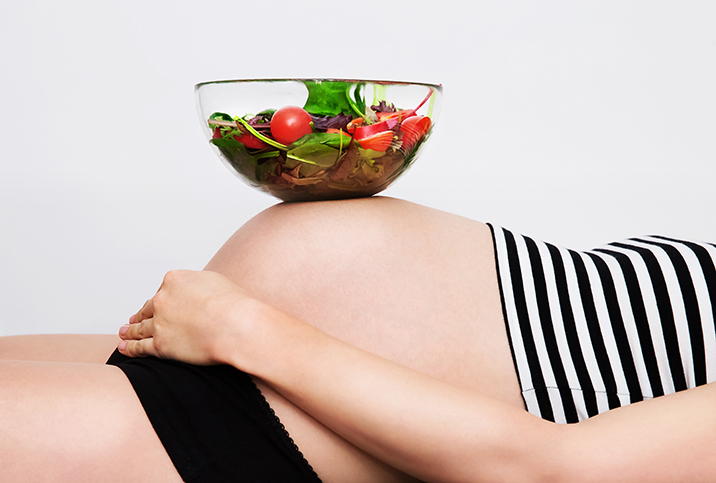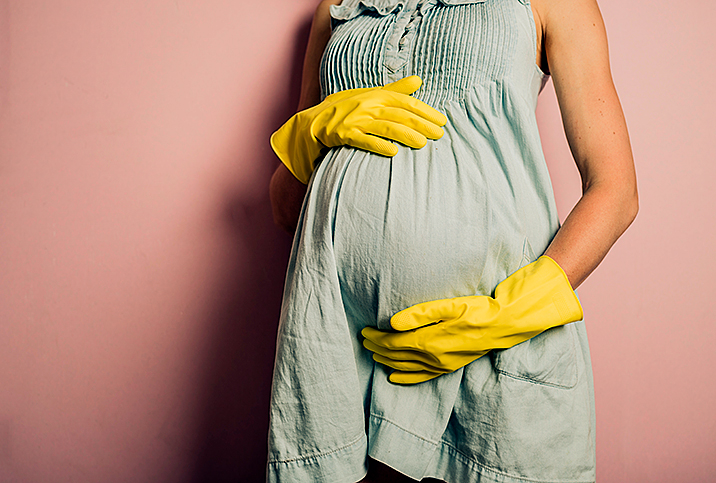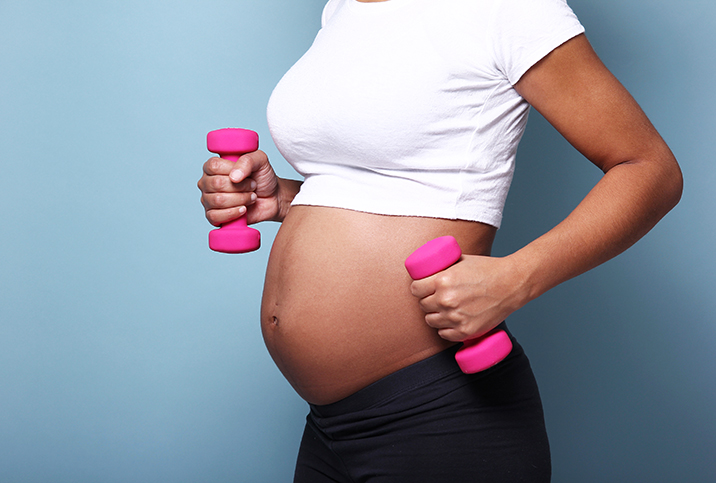Your Second Pregnancy May Look a Little Different Than Your First

When I became pregnant the second time, I thought I had a handle on this whole being-with-child thing. I figured I would show earlier, and I crossed my fingers I didn't have such horrible morning sickness. People warned me I could feel the exact opposite compared to my first pregnancy.
Here's the thing: My first pregnancy helped prepare me. But I learned I could still get thrown for a loop.
For Ramsey, a mom of three, whose second baby was stillborn, labor progressed much quicker each pregnancy. "By the third one, we barely made it to the hospital on time."
So what should you expect to be different between your first pregnancy and the subsequent ones? For that, we reached out to the experts.
Physical differences
There are some things you can typically expect will differ from your first pregnancy when it comes to your body. The TL;DR version is that many of the things that happen to your body in the first pregnancy will happen sooner in the next ones due to your body "knowing and remembering" what to do.
Carolyn DeLucia, M.D., FACOG, author and women's health expert, tells us what we can typically expect with subsequent pregnancies:
- You'll tend to show sooner due to the relaxation of abdominal muscles
- The baby can drop into your pelvis sooner
- The cervix can soften and dilate earlier
- Labor can progress quicker
- Your vagina stretches more (sorry). This is also why sex might feel different, because of decreased sensation. Fortunately, this is one of the physical changes that can actually be treated.
A shifting in identity and community
Your first pregnancy tends to change how you identify yourself. It also tends to shift your relationships so that parents are less involved in their communities and put a focus on their new role as a parent, according to Helen Dempsey-Henofer, LCSW, who works in private practice. The second pregnancy is more of a shift in family dynamics.
"This can be influenced by the way in which parents identify with traits of infant children, including personality, birth order, and gender," Dempsey-Henofer explained.
You also no longer have to deal with the unknown, for the most part. Pregnancy isn't a mystery anymore, DeLucia said. You don't have to wonder about how your body will change or if you'll be able to meet the everyday demands of your life.
The emotional changes
"Love isn't pie," as Dempsey-Henofer put it. Fears around wondering if there's enough love to go around are common when a new baby is added. "You may wonder if you'll love this new baby as much as you do your older children."
If your other children are young, they may feel a mix of excitement and jealousy. Dempsey-Henofer explained siblings may worry the love that goes to the new baby will decrease the love for them. While your love for your older children won't decrease, realistically, the time you have for them will—for a time.
"In truth, new babies require time and attention, and the core family members need to be prepared for how the new arrival will impact their role," Dempsey-Henofer explained.
Sabrina, a mom of two, was exhausted taking care of herself and her other child during pregnancy. "Mentally I knew how motherhood could be (hard AF) so I prepared to make different choices, including formula feeding from the start," she explained. "I attribute owning what was best for me and my baby to my mental health being way better [the second time around]."
How to prepare yourself for a subsequent pregnancy
Have help
One pregnancy under your belt (pun intended?) can relieve some of the new parent anxiety. But, as DeLucia pointed out, now you already have a child or more to take care of.
"That's a huge demand," DeLucia said, "having to take care of one child while running around pregnant. It's not easy." So if you're able, prepare to find some help in the form of a partner, friend or relative.
Get rid of your expectations
Your friends can share their stories about their own pregnancy differences all they want. But what happened to them isn't necessarily going to happen to you. When it comes to pregnancy, everything and anything can be different. Even your first pregnancy can be vastly different than your next.
Nicole, a mom of two, said her first was always moving around inside her, so she understandably became concerned when her second baby moved less. "I worried something was wrong. Nope! He's just a more chill kid, even now."
Be flexible to changes
"The arrival of a baby is a time of enormous shifts in the family," Dempsey-Henofer explained, "It requires physical and emotional energy from expectant parents and siblings to-be."
Be kind to yourself. It's normal to feel disappointed when your plans for labor shift, or to feel sad your other child is no longer your only. If you have different pregnancy experiences, know it's normal and not a reason in itself to be concerned.


















